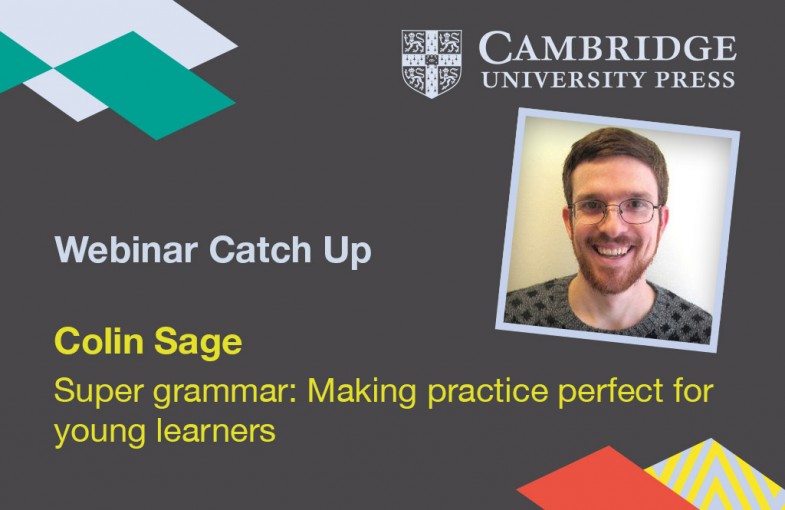Super Grammar: Making practice perfect for young learners
For this professional development webinar, we were joined by Colin Sage, an ELT author, editor and teacher-trainer who specialises in Primary and pre-Primary learning. The webinar focused on grammar, using examples from the new Super Grammar practice books, beginning with an anecdote about a student trying to understand the world of grammar used in the classroom…
Colin started the webinar by explaining the focus will be on the process of ‘practice’ which takes place in a classroom setting – and the “amazing transformation” which we hope will take place in the middle of classroom lessons. Participants were invited to take part in a poll to compare different teaching styles:
- “My students read and listen to lots of books and stories, and learn grammar without needing to be taught it”.
- “I teach grammar by first explaining it to students, then giving them activitities to practice it, then encouraging them to use it freely in a task”
- “My students mainly practice grammar by translating sentences from their first language to English.”
- “I ask students to complete tasks and I teach the grammar when they need it, or at the the end of lessons.”
This helped the audience relate to the practice stage in their teaching context and developed into a more detailed explanation of what ‘practice’ means for grammar, as the middle of a three-part ‘Presentation-Practice-Production’ teaching sequence.
By zooming in on practice, Colin demonstrated the different methods and ways of thinking to apply when integrating practice in the classroom. He explained how having lots of different stages in practice activities can be useful to keep students motivated. Also, by mixing the variety of stages, this can help teachers to maintain student focus. Colin offered example activities which have the benefit of helping students to understand the meaning of forms and grammar.
Colin then focused on example methods and activities for students to collaborate with each other in the classroom, including the idea of pairing stronger and weaker students together to present their answers to the class. Another example involved practicing formation and pronunciation in order to help students find the correct answers, such as selecting the correct word from the box in order to complete the sentences. Colin also described the benefits of receptive reading practice, and the quick thinking immediacy of demanding a yes/no answer from the student, such as ‘is it a rubber?’ and ‘is it a pencil?’
Further practice teaching tips were also explored, including an example of a receptive proactive activity where students need to match the sentences to the pictures. Colin concluded the webinar by inviting the audience to share their own activity ideas via Twitter. If you would like to share your activity with us, please mention @CambridgeUPELT and include #supergrammar in the tweet!
Watch the full recording below.

Немає коментарів:
Дописати коментар